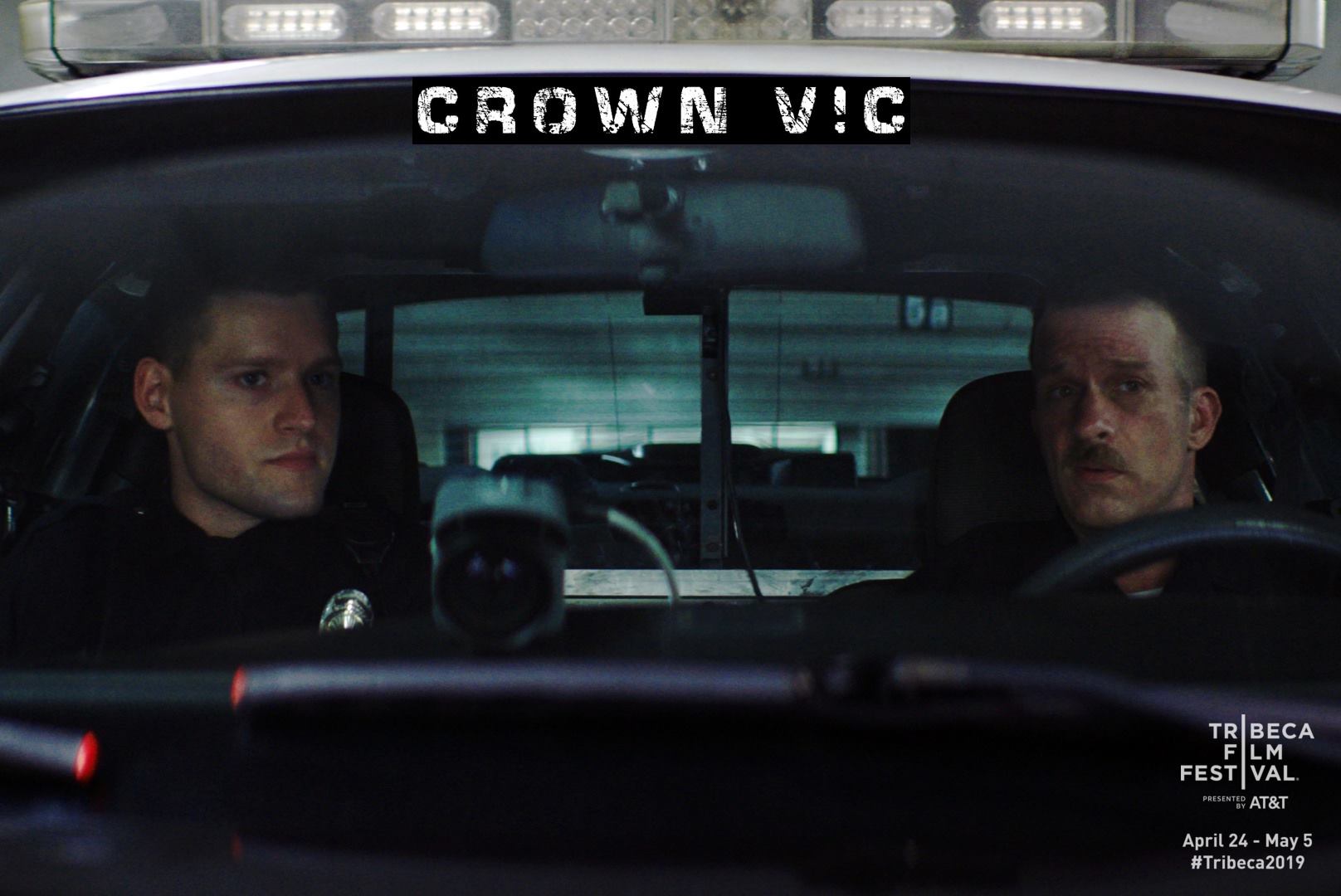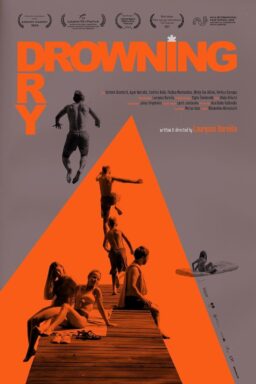A trio of narrative films premiered this weekend at Tribeca that star actors I’m always interested in seeing—Thomas Jane, Elijah Wood, and Wendell Pierce. They’re underrated performers who take risks, often attaching themselves to indie films in a way that helps elevate new filmmakers. Sadly, all three films have issues that hold them back, but none of those are the fault of their stars. In fact, all three gentlemen are the best thing about their Tribeca movies—I just wish the films lived up to their performances a bit more.
The best of the three is the brutal and vicious “Crown Vic,” written and directed by Joel Souza. An old-fashioned cop drama with echoes of David Ayer’s “End of Watch,” “Crown Vic” doesn’t break any molds, but allows Thomas Jane yet another part that reminds one how grounded and resonant he can be in the right material. (I still don’t understand how he’s not leading one of those “CSI” or “Chicago” shows, although maybe he’s just interested in more challenging fare). Jane plays Ray Mandel, something of a modern-day Bud White in the way he grumbles about what the job has done to him over his decades of service but maintains his own strict moral code (which is more than can be said for a couple of total lunatic officers played by Josh Hopkins & David Krumholtz, the kind of guys who brag about abusing suspects). Ray has seen his city of Los Angeles go straight to Hell, and he’s going to give new officer Nick Holland (Luke Kleintank) a bit of a lesson on his first long night on the job, one that includes a missing kid and a pair of cop killers on the run in the City of Angels.
Long scenes of dialogue between Mandel and Holland are punctuated by incredibly violent encounters in a way that will disarm some viewers, but I think that’s part of the point. Violence in the life of an L.A. cop comes quickly and unexpectedly—and there’s a lot of time to talk in between. Some of the dialogue is a bit on the nose and we’ve seen the “veteran & rookie” dynamic a hundred times, but Jane keeps the movie ticking, especially as he’s contrasted with Hopkins’ true sociopath. Jane’s Mandel may push the boundaries of the law to find something he considers justice but Hopkins’ VanZandt represents how letting that mindset go too far can lead to true villainy. There’s almost too much movie in “Crown Vic”—it feels at times like the pilot to a series and reminded me of “The Shield” in that sense—but given how there’s usually too little movie for fest films, I’ll take the opposite for a change of pace.

There’s just barely too little movie in Phillip Youmans’ debut “Burning Cane,” a Tribeca entry that had a lot of buzz coming in because it marks the youngest filmmaker to ever have a flick at the festival— Youmans is 19! The young man’s film, produced by Benh Zeitlin of “Beasts of the Southern Wild” fame, is undeniably a calling card for someone who could become a major voice in filmmaking. It also bears the fingerprints of youth, often feeling more like a student film than a major production. Youmans’ eye feels caught somewhere in the middle—undeniably remarkable for someone his age, but still a bit inexperienced for what he’s trying to accomplish here.
“Burning Cane” is a tone piece, clearly inspired by both Zeitlin’s film and the work of Terrence Malick. Handheld camerawork, long passages without dialogue, almost zero narrative thrust—it’s a piece about life in a specific culture in this country more than it is traditional piece of storytelling. It is a tableau of life in Southeastern Louisiana, vaguely connected images of people who rally around a church and a bottle. The most memorable is a preacher played by the excellent Wendell Pierce, who imbues his sermons with a memorable blend of religious fervor and human regret. Youmans’ film doesn’t judge its troubled, focus-less characters, merely presenting them in a way that feels like it’s trying to turn the mundane into art.
Sometimes it’s trying a bit too hard. “Burning Cane” is ridiculously low-lit, as if not being able to see faces gives the film added gravity, and the handheld work feels precious as often as it does artistic. Not everything needs to be at an angle to be effective. And yet there’s an empathy in Youmans’ filmmaking that’s going to make me very curious to see what he does next. And if this doesn’t get Pierce the part that his prodigious talent warrants, I’m not sure what will.

Ant Timpson’s “Come to Daddy” is technically a debut as well but Timpson has been on the horror scene for years, producing films like “The ABCs of Death” and “Turbo Kid.” This entry isn’t as “out there” as you might expect, grounding itself more in a story of estrangement and regret (at least for the first half) and carried by another memorable performance from Elijah Wood, who can always find a way to tether even the most ridiculous stories to something that feels relatable.
Wood plays the meek Norval, whose thin mustache and hipster aesthetic practically shout his insecurities. He’s the opposite of his estranged father, whom he goes to visit after receiving a letter to reunite. They haven’t seen each other in years, but the alpha male monster who answers the door, played with fire and brimstone by Stephen McHattie, does not seem interested in a reunion. He doesn’t even remember sending a letter. Was he drunk? (He clearly is now.) It’s depressingly obvious that things are not going to go well, although exactly where Norval’s story is headed is not something viewers will be able to predict.
Without spoilers, let’s just say that “Come to Daddy” is not the heartwarming father-and-son reunion that its protagonist hopes for in the opening scenes. Norval is forced to violently reckon with who he is and where he comes from in a way that pushes believability a few degrees past what I was hoping, but always works because of how in the moment Wood remains throughout. He can sell the most ridiculous, twisty narrative. He has to do a lot of selling here, but I bought most of it.












